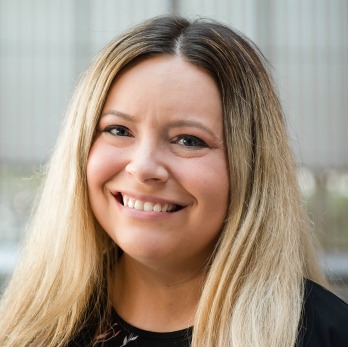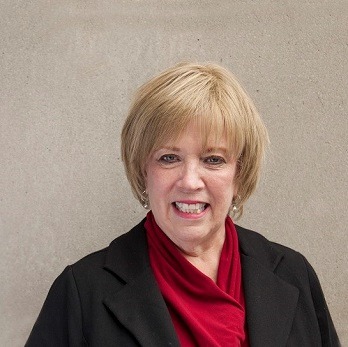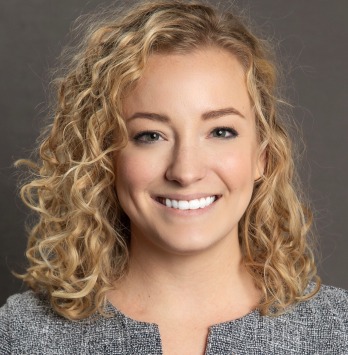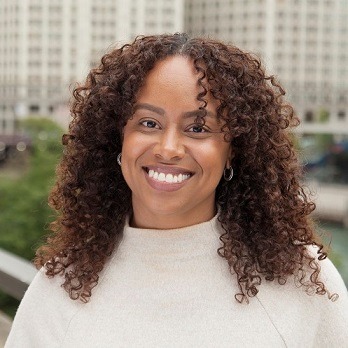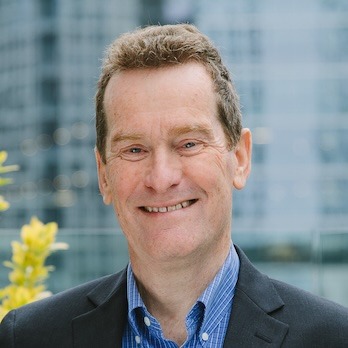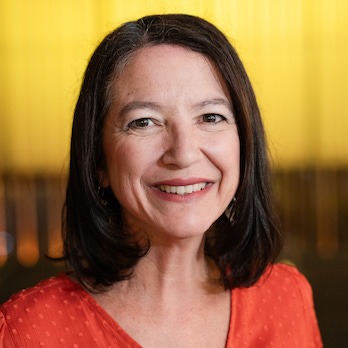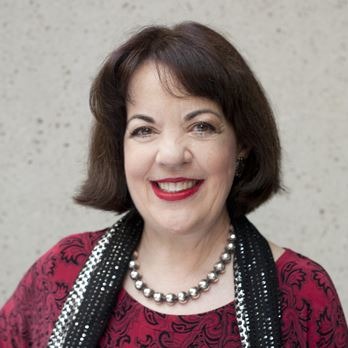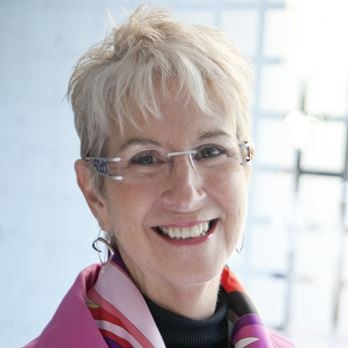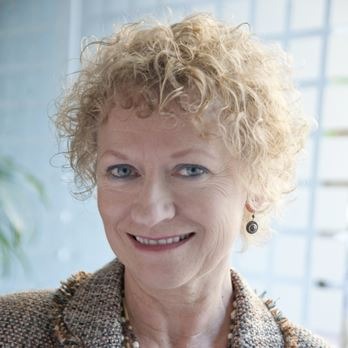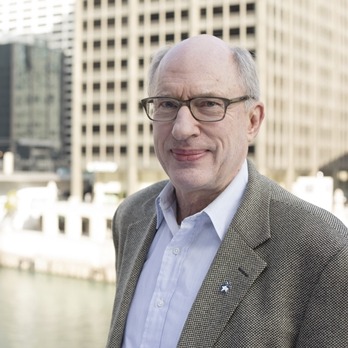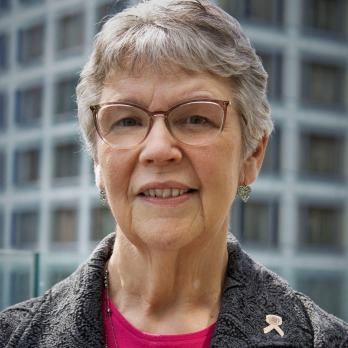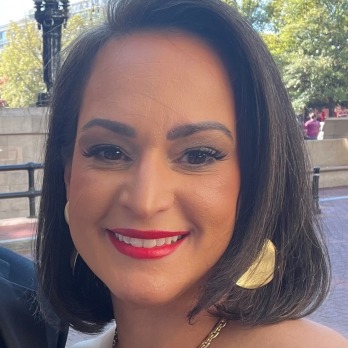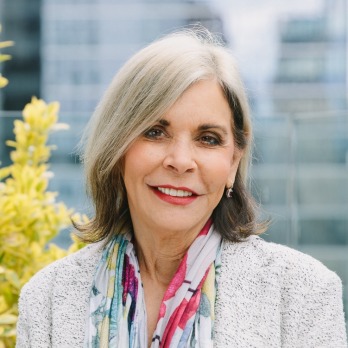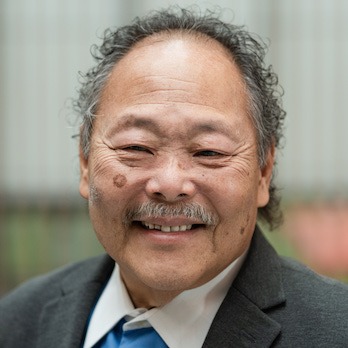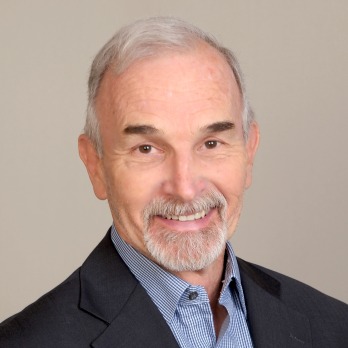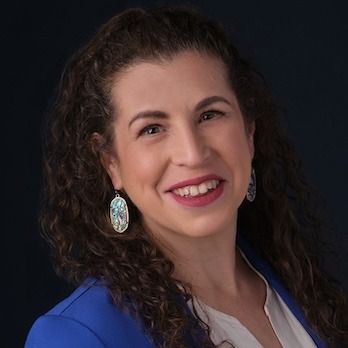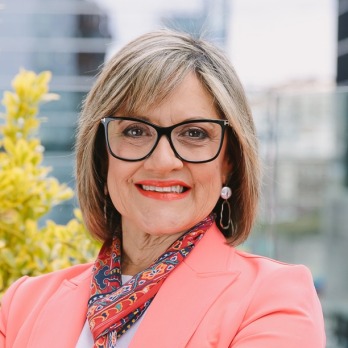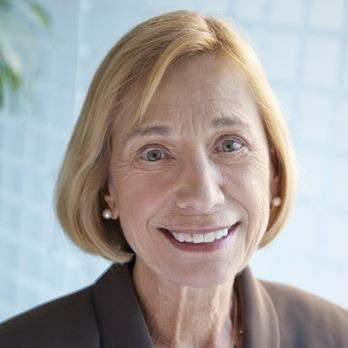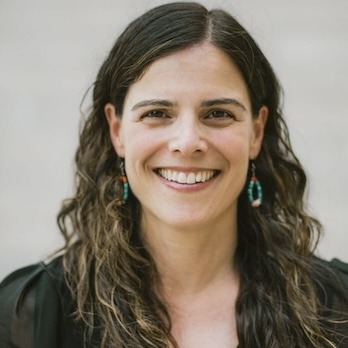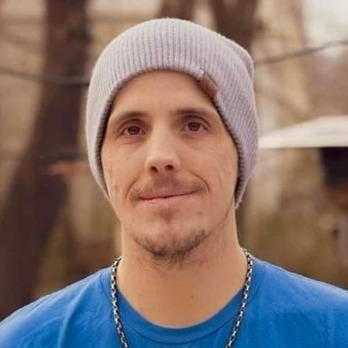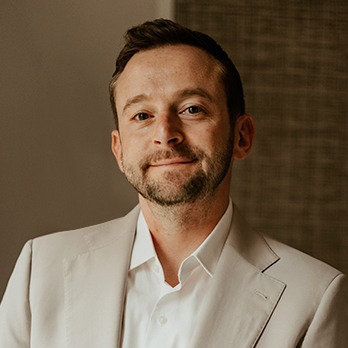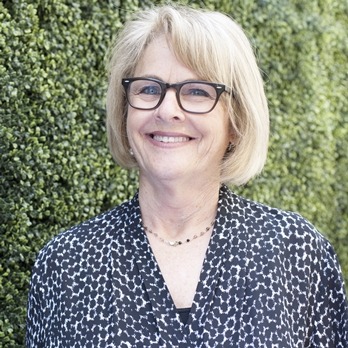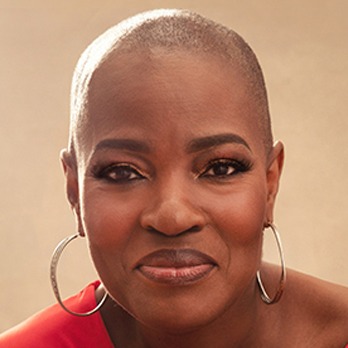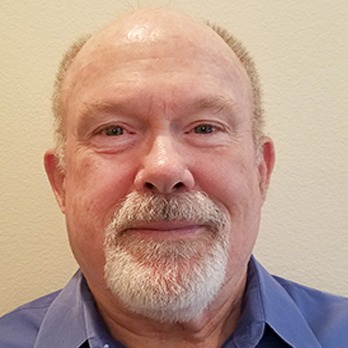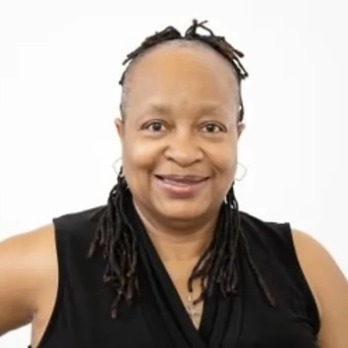
Our Advocates
Advocates serve as the voice of the patient in the development and execution of our trials.
Patient Advocate Committee Vision
All Persons. All Places. All Times.
The vision of Patient Advocate Committee (PAC) is to ensure that SWOG trials are accessible and available to all people impacted by a cancer diagnosis.
Regardless of their geographic location, and at every point throughout the disease trajectory: from prevention and/or risk reducing strategies, treatment with “curative” intent and for those in long term or lifelong treatment including management of symptoms, preservation of quality of life, and post treatment survivorship concerns, the PAC is committed to meeting the diverse needs of All Persons, in All Places, at All Times.
PAC Mission Statement
The overarching mission of the PAC is to represent the voices of patients, their families, and caregivers in all aspects of SWOG research from concept development through dissemination of findings.
To achieve its mission, PAC members:
- Are represented on research committees and research support committees.
- Work with study teams throughout the entire development process to identify potential barriers and any other areas of concern for participation.
- Offer ideas and suggestions that might facilitate representative accrual to SWOG studies.
- Ensure the voices of patients, family members, and caregivers are included in all SWOG clinical trials from their inception to execution, and through final analysis and publication.
Our Advocates
SWOG has two types of patient advocates - research advocates and community advocates.
Research advocates are our clinical trial experts. They are assigned to a committee and are involved in all aspects of trial design and development, ensuring that the concerns of patients - medical, logistical, emotional, financial - are addressed and that patients understand the risks and benefits of joining a trial.
Community advocates are our community experts. They work across committees to ensure a front-line patient view or advise on connecting with the communities, such as African Americans or military veterans, that they represent.
SWOG Cancer Research Network has the largest - and most experienced - group of advocates in the National Cancer Institute's National Clinical Trials Network. We're proud of our advocates and value their contributions to our work.
Roberta Albany serves as a patient advocate with SWOG’s breast committee and lives in Mt. Penn, Pennsylvania. Since her 2013 diagnosis with breast cancer, she has committed herself to serving as a voice for the voiceless, especially those in underrepresented communities. With this goal in mind, she founded and serves as CEO of Cancer in the Know, which focuses on ameliorating the impact of breast cancer in the Black/African American community. She has worked with numerous advocacy organizations, including the Tigerlily Foundation, the National Breast Cancer Coalition, and the American Cancer Society. She serves as a board member of Living Beyond Breast Cancer, breast coach for The Chrysalis Initiative, and an Advocates in Science Committee member for Susan G. Komen. Additionally, she has served as a reviewer with the Department of Defense and the Pennsylvania Breast Cancer Coalition.
Laura Esfeller, MA, is the kidney cancer advocate serving on the genitourinary committee and lives in Rancho Cucamonga, California. Diagnosed with stage IV papillary renal cell carcinoma at the age of 29, Laura eventually joined the landmark S1500 PAPMET kidney cancer trial and was randomized to cabozantinib, to which she had a complete response. She serves on the patient advisory board of KCCure and is a contributing writer to Patients Rising. She has also served as a panelist and/or reviewer with the Kidney Cancer Association, KidneyCAN, the NCI, and the Department of Defense. She is director of marketing services for the San Manuel Band of Mission Indians and writes the blog singlewhitekidney.wordpress.com.
Valerie Fraser is the advocate serving on the palliative care committee and lives in Huntington Woods, Michigan. She serves as an officer and director of research, advocacy, and board development for the Inflammatory Breast Cancer International Consortium. As a cancer research advocate, she has served on clinical trial working groups, scientific review panels steering committees, and advisory groups and as advocate consultant and peer reviewer on grants for the Department of Defense, California Breast Cancer Research Program, Patient-Centered Outcomes Research Institute (PCORI), Komen, and others. Valerie is a PCORI ambassador and works with the National Coalition of Cancer Survivorship and International Cancer Education to advance quality care, research, education, and public policy. She is a frequent speaker on topics such as advocacy, patient communication, quality care, and cancer education and research. Valerie is a survivor of inflammatory breast cancer, and served as a caregiver and advocate for both parents, whom she lost to cancer.
Lauren Fryzel is the community advocate for the adolescent and young adult cancer committee. Lauren was diagnosed with Hodgkin’s lymphoma at the age of 18. After she finished her treatment and returned to college, she joined the American Cancer Society’s Colleges Against Cancer program, through which she learned about fundraising, programming, and advocacy. She served as president of her chapter in her senior year, and her advocacy efforts included lobbying at the Michigan state capitol. After college she worked for four years with the American Cancer Society and is now a patient and community outreach manager with the Leukemia and Lymphoma Society, where she serves as a local advocate for patient access to resources and programs.
Eileen Z. Fuentes, MA, is a SWOG community advocate living in New York City. She is currently manager of patient relations at Memorial Sloan Kettering Cancer Center and previously worked at Columbia University Irving Medical Center, where she coordinated the care and services for breast and gynecologic oncology patients and developed a bilingual wellness program for those in treatment. In addition, Eileen has extensive human resources management in healthcare experience and holds a master’s degree in health education from Columbia University Teachers College. She has been recognized for her advocacy work and serves as patient advocate for the National Cancer Institute (NCI) Cancer Care Delivery Steering Committee; the Society for Integrative Oncology (SIO) Health Equity, Inclusion, & Belonging Task Force; and the New York City Nutrition Education Network (NYCNEN). Eileen is a triple negative breast cancer survivor.
Paul Gater is SWOG patient advocate for myeloma. Paul was diagnosed with multiple myeloma in 2014 and has been undergoing treatment for the disease for most of the intervening years. He retired in 2019 from a career in pharmaceutical R&D, that spanned all phases of discovery, development, and commercialization of new medicines – from drug discovery research in the laboratory through project management of global, cross-functional drug development teams to directing operations in a post-marketing department. As an advocate for patients with the disease, he has raised significant funds for the Multiple Myeloma Research Foundation through fund-raising walks and bike rides, has mentored other patients working through Smart Patients and the Bone Marrow Foundation, and has represented the International Myeloma Foundation as a consumer reviewer on a Department of Defense program review panel. He is deeply engaged in the civic life of the city of Half Moon Bay, California.
Tricia Hernandez, MS, is the advocate serving on the lymphoma committee and lives in Avondale, GA. She is senior manager for community engagement with the Leukemia & Lymphoma Society, working to improve engagement with patients, caregivers, healthcare professionals, and volunteers. Her areas of focus include disease management and health disparities, community partnerships, and access to cancer education. With LLS, she has worked with the Comprehensive Cancer Control National Partnership and the Adolescent and Young Adult Advisory Group. Tricia is a survivor of Hodgkin lymphoma.
Marcia K. Horn, JD, is the advocate serving on the early therapeutics and rare cancers committee and lives in Phoenix, Arizona. Since 1996, Marcia has served as president and CEO of ICAN, the International Cancer Advocacy Network, which assists stage IV cancer patients across the U.S. and in 54 countries. She serves on the Banner Health's IRB in Phoenix and the ASCO TAPUR Study Molecular Tumor Board. She is the U.S. research advocate for the Stand Up 2 Cancer (SU2C) Molecular Early Detection of Colon Cancer Dream Team and is one of the advocates for the SU2C Dream Team on Lung Cancer Early Interception. She also serves as a research advocate for the NCI’s Lung SPORE (UT Southwestern-MD Anderson Cancer Center). Marcia is vice president of the Biomarker Collaborative and executive director of the Exon 20 Group, an international multi-stakeholder coalition overseeing the advocacy and navigation for hundreds of EGFR exon 20 and HER2 exon 20 insertion driven non-small cell lung cancer patients. Her mother was a 16-year HER2-positive breast cancer survivor.
Cheryl Jernigan, CPA, FACHE, is the advocate serving on the prevention, screening, and surveillance committee and lives in Kansas City, Missouri. Cheryl is a 25-year breast cancer survivor with over 20 years of research advocacy experience. She is a co-survivor with her husband, who had HPV tonsil cancer and died in 2018 of metastatic prostate cancer. Cheryl is the lead advocate for Patient & Investigator Voices Organizing Together (PIVOT), a University of Kansas Cancer Center initiative, and serves on the cancer center’s NCORP scientific leadership and catchment area committees. She is active with the Frontiers Clinical & Translational Science Award, the Kansas Institute of Precision Medicine’s Center for Biomedical Research Excellence (COBRE), and the Greater Plains Collaborative, a clinical research data network. Nationally, she was a member of Susan G. Komen’s scientific advisory board, and was a founding member of their Advocates in Science program , where she continues to serve on the steering committee. She is a Komen Scholar and active in their BD4BC (Big Data for Breast Cancer) initiative. Other service includes the external advisory board of Rutgers Cancer Institute of New Jersey, the NCI’s Central Institutional Review Board for adult late phase trials, and the steering committee of the Clinical Trials Transformation Initiative.
Judy Johnson, MBA, is the advocate serving on the lung committee and the lung community engagement subcommittee and lives in St. Louis, Missouri. Judy is a member of the SWOG-CTP Scientific Advisory Board, and a member of the SWOG 1415-CD TrACER external stakeholder advisory group. She lives in St. Louis, Missouri. Judy serves as an advocate member on the NCI Thoracic Malignancy Steering Committee, the NCI Patient Advocate Steering Committee, and the NCTN Core Correlative Sciences Committee B. She has five years of experience as a clinical trials study coordinator overseeing lung trials at the Siteman Cancer Center, and served for four years on a new protocol review committee on Washington University’s Institutional Review Board. She is also a member of Siteman Cancer Center’s external advisory board and Washington University’s Leukemia Specialized Program in Research Excellence (SPORE). She is a breast cancer survivor, and lost her father and father-in-law to lung cancer.
Lee Jones, MBA, is the advocate serving on the symptom management and survivorship committee and lives in Arlington, Virginia. Lee is retired and has extensive executive experience in corporate, government, and non-profit settings, with special expertise in financial systems. A stage IV colon cancer survivor, Lee is a long-time cancer research advocate who serves on the Georgetown University Oncology and NCI Central (Early Phase) Institutional Review Boards, and has reviewed research proposals for groups such as the Department of Defense, the American Society of Clinical Oncology, and the Patient-Centered Outcomes Research Institute (PCORI). Lee is a member of the board for the Cancer Action Coalition of Virginia and on the Ruesch Center Advisory Board at Georgetown University. He served a term on PCORI’s Clinical Trials Advisory Panel, has co-authored two published papers on cancer research issues, and volunteers with Fight Colorectal Cancer, Friends of Cancer Research, and the Alliance for Regenerative Medicine.
Jamie LaScala serves as a patient advocate on the breast committee and lives in Wilmington, Delaware. She was diagnosed with Stage III inflammatory breast cancer in 2015 and has since dedicated herself to advancing breast cancer research and clinical trials. Jamie serves as a patient advocate board member for the Translational Center of Excellence in Breast Cancer at Penn Medicine and as Penn’s advocate to the Translational Breast Cancer Research Consortium (TBCRC). She has served as a consumer reviewer for the Department of Defense Breast Cancer Research Program, an advocate reviewer for Susan G. Komen, and a member of ASCO’s Breast Cancer Guideline Advisory Group (2021–2025). She has also been recognized with the 2024 Donna Noce Colaco Going Beyond Award from Living Beyond Breast Cancer and presented patient perspectives at the 2025 ASCO Annual Meeting. In her professional career, Jamie is an analyst at Nemours Children’s Health and a former executive in investment management, bringing both professional expertise and lived experience to her advocacy.
Ginny Mason, RN, BSN, is one of two advocates serving on the breast committee and lives in Virginia. Ginny also serves on SWOG’s digital engagement committee. She is a registered nurse and the executive director of the Inflammatory Breast Cancer Research Foundation. Ginny has served as a board member, advisor, mentor, speaker, and grant reviewer for a variety of organizations, including ASCO, the Department of Defense, the American Association for Cancer Research, the U.S. Food and Drug Administration, and the Florida Breast Cancer Foundation. She is a member of Komen Advocates in Science and represents Indiana University Simon Cancer Center in the Translational Breast Cancer Research Consortium (TBCRC). She was diagnosed with inflammatory breast cancer in 1994 and endometrial cancer in 2019.
Marielle McLeod, MHA, CPN, serves as patient advocate for colorectal cancer on the gastrointestinal committee and lives in Charleston, South Carolina. Marielle is a young adult Stage III colon cancer survivor and is the director of programs and outreach at Cancer Hope Network, a national cancer peer support non-profit. With over twenty years of experience in the healthcare landscape spanning over public health, for-profit, and non-profit work, she also serves as an SGE for the FDA as a patient advocate in the Molecular and Genetics review panel, patient research advocate for OPTIMISTICC with CRUK, advocate in the first ever Latina Patient Advocacy group, and is on the leadership committee at VMCC. Marielle is a native Spanish speaker. Her advocacy focuses on increasing awareness and education of colorectal cancer and increasing the engagement and participation of the Latino population in clinical studies and research.
Anne Marie Mercurio is co-chair of the patient advocate committee and is a member of the SWOG executive advisory committee. She also serves as patient advocate for the SWOG digital engagement committee and lives in Ponte Vedra Beach, Florida. She serves in two roles at the Herbert Irving Comprehensive Cancer Center at Columbia University – on the patient advocate board and the executive board for the Minority and Underserved Community Oncology Research Program (MU-NCORP). She also serves on the external advisory boards for the Lurie Comprehensive Cancer Center and the University of Arizona Comprehensive Cancer Center. In addition to serving on grant review panels for the Department of Defense and the American Society of Clinical Oncology, she is a site reviewer for NCI cancer center grant renewals, and a member of Medidata’s Patient Design Team. Anne Marie helps ensure the patient perspective is incorporated into all aspects of the clinical trial process, and is passionate about the use of digital tools as a means to foster dialogue between cancer patients, physicians, and researchers and to reach a global audience. Anne Marie is a survivor of lobular breast cancer and was her late mother’s primary caregiver throughout her eight-year treatment for metastatic breast cancer.
Darrell S. Nakagawa is the bladder cancer patient advocate with the GU committee and lives in Schaumburg, IL. He serves as a patient advocate with the Bladder Cancer Advocacy Network (BCAN), contributing his skills and expertise to the BCAN Think Tank, Patient Summit, and Walk to End Bladder Cancer. He serves as the leader for BCAN’s Chicago chapter. As a patient advocate with Northwestern Medicine, Darrell has served as a patient education webinar facilitator and project manager, and he facilitates Northwestern's mixed patient support group in bladder cancer. He also is part of the Lurie Cancer Center’s Patients and Families Advisory Board, and represents the patient voice on a Scientific Review Committee. As president of the firm DN Direct, Darrell has had a career in continuous improvement consulting, organizational transformation, process excellence, and marketing communications with organizations including Signify, Sears Holdings, Sara Lee, and General Electric.
Joël Pointon, MPH, lives in San Diego, California, and is the prostate cancer advocate with the genitourinary committee, a SWOG community advocate, and a member of the Leadership Council on Representation. Joël is the principal and founder of JRP Charge, which provides consulting services on multi-unit dwelling electric vehicle charging infrastructure challenges. He has spent his career in the environmental health and safety field. He is a prostate cancer survivor and an active contributor to the Health Unlocked community support groups, including the Advanced Prostate Cancer group and Gay Men with Prostate Cancer group. He has participated in a clinical study of gay men with prostate cancer and treatment recovery at the University of Minnesota. He has developed and presented his program on “ADT, Resistance Training and QoL” in the Survivorship Module for the Prostate Cancer Foundation’s 28th Scientific Retreat. He has also been active in health advocacy as a member of the leadership for the AARP San Diego Advocacy Team, serves on the Senior Advisory Council for State Senator Akila Weber Pierson, MD, and is a refugee navigator with Jewish Family Services.
Allison Rosen, MS, is the research advocate on SWOG's adolescent and young adult (AYA) cancer committee and lives in Houston, TX. Allison serves as a project director at the Center for Health Promotion and Prevention Research at the University of Texas Health Science Center at Houston. She also serves as a member of the Young Adult Advisory Council and the Patient and Family Advisory Council at MD Anderson Cancer Center, the Teen Cancer American Advisory Board, the Executive Committee of the Cancer Alliance of Texas, and the Colorectal Cancer Alliance Never Too Young Advisory Board. She is a Fight Colorectal Cancer ambassador and research advocate. Allison serves in various other leadership roles as well, with the goal of educating, advocating, and collaborating to help spread awareness about cancer. She is a colorectal cancer survivor.
Barbara Segarra-Vazquez, DHSc, is co-chair of the patient advocate committee and is a member of the SWOG executive advisory committee. She is als the advocate serving on the cancer care delivery committee, and lives in San Juan, Puerto Rico. Barbara is dean of the School of Health Professions at the Medical Sciences Campus of the University of Puerto Rico. She is also the principal investigator of the Hispanic Clinical and Translational Research Education and Career Development (HCTRECD) program funded by the National Institute on Minority Health and Health Disparities. She has deep experience in clinical research and cancer trials through organizations such as the Department of Defense, the American Association of Cancer Research, Susan G. Komen, and the Puerto Rico Cancer Control Commission. She is the vice-chair of the Susan G. Komen Advocates in Science Steering Committee and active in Advocates for Collaborative Education. She speaks Spanish, and has an interest in addressing minority health disparities. Barbara is a two-time breast cancer survivor.
Carole Seigel, MBA, is the pancreatic cancer advocate on the gastrointestinal committee and also serves on the palliative care committee. She lives in Brookline, Massachusetts. Carole is honored to be an Advocacy Champion at the President’s Circle level at the American Society for Clinical Oncology (ASCO). She is a grant reviewer for ASCO, the NCI and the Department of Defense, a clinical reviewer for the Journal of Clinical Oncology, and serves as an advocate advisor for projects run by the National Pancreas Foundation, the Research Advocacy Network and the Patient-Centered Outcomes Research Institute. Carole is a political advocate for the ASCO Advocacy Summit and the American Cancer Society Cancer Action Network. She is a founding member of the Patient and Family Advisory Council at the Massachusetts General Hospital Cancer Center. Carole’s career was as a practice management consultant to hospitals and physicians. Her husband died of pancreatic cancer.
Sara Selig, MD, MPH, is the melanoma patient advocate with the melanoma committee and lives in Boston, MA. She is the founder and past director of CURE Ocular Melanoma (CURE OM), an international initiative under the Melanoma Research Foundation that advances research, education, and support for patients with ocular melanoma. In this role, Sara launched and served as the principal investigator for the VISION global patient-reported registry. Currently, Sara is the division director of research shared services at the American Society of Clinical Oncology’s (ASCO's) Center for Research and Analytics (CENTRA). Prior to joining ASCO she served as an associate physician at Brigham and Women’s Hospital in the Division of Global Health Equity. Sara holds faculty appointments at Harvard Medical School, where she teaches, and she has spent two decades working with Tribal Nations and communities around the world to advance research and build equitable, data-driven, inter-disciplinary and patient-centered health systems. Her work is grounded in both professional expertise and lived experience as a caregiver and advocate for her husband, Gregg.
Jacob “JJ” Singleton is a SWOG community advocate who was diagnosed with colorectal cancer in 2015, which then metastasized. Since that time, he has been living with incurable cancer. As an advocate, JJ has worked as a national ambassador with Fight Colorectal Cancer, is on the national survivor board of the Colon Cancer Coalition, and has advocated on Capitol Hill on behalf of those with colorectal cancer. He has done advocacy work with the National Cancer Institute, the American Cancer Society, and Stupid Cancer, and has spoken on behalf of pharmaceutical companies about his cancer experience. JJ credits a clinical trial with having saved his life.
Jonathan Sommers is a member of the digital engagement committee and the adolescent and young adult committee. Jonathan is a filmmaker and producer, a patient advocate, and a testicular cancer survivor who recently relocated to Denver, Colorado after 16 years in Santa Monica, California. At Digital Health Networks he oversees original content with particular interests in increasing public awareness of clinical trials, health disparities, and issues pertaining to adolescent and young adults. His advocacy work spans over 10 years and includes creating the USC Norris Cancer Center’s & UCLA’s testicular cancer initiative that reformed the Los Angeles Unified School District’s health education curriculum and providing peer counseling to numerous cancer patients. As a member of SWOG's digital engagement committee, he received a pilot grant from The Hope Foundation for Cancer Research to produce the three-part web-series, Cancer Briefs, which tests the effectiveness of infotainment to raise public awareness of cancer trials.
Gail Sperling, MPH, is the advocate serving on the leukemia committee and on the MyeloMATCH master protocol and lives in Huntington Beach, California. Gail worked for nearly 20 years at the Leukemia & Lymphoma Society, where she served as senior manager of the Information Resource Center, a critical source of general information, medical and clinical trial referrals and connections to support services that help patients and their families navigate through cancer treatment. Gail has more than 30 years of experience as a healthcare educator and program manager, building and running a hospital-based women’s health program, a community-based health program, a cancer community outreach initiative, and several patient advocacy programs. She is the daughter and sister of cancer survivors and has many friends and loved ones who have survived their disease.
Desirée A. H. Walker is the advocate serving on the recruitment and retention committee and lives in New York, NY. Desirée has more than 17 years of experience as a health educator, trainer, and coach, with extensive service with SHARE and the Witness Project of Harlem. Both programs serve African-American communities in New York City. She serves on the patient advisory and community advisory boards at the Herbert Irving Comprehensive Cancer Center at Columbia University and the Tisch Cancer Institute at Mount Sinai. She also serves as a research reviewer for the Conquer Cancer Foundation, the Cornell Center for Health Equity, Patient-Centered Outcomes Research Institute (PCORI), and the Department of Defense Breast Cancer Research Program. She is president of the board of the Young Survival Coalition and a member of the NCI’s Central Institutional Review Board. Currently, she is working on research projects with the Columbia University Mailman School of Public Health and the University of Wisconsin-Madison as a patient advocate, and as a co-patient investigator on a research project with Memorial Sloan Kettering Cancer Center. She is a two-time breast cancer victor.
Bruce A. Wright is a SWOG community advocate living in Ladera Ranch, California. Bruce is a retired U.S. Navy commander, where he served for more than 20 years. Bruce is a Vietnam War veteran who served three tours of duty, work that exposed him to Agent Orange, which caused his cancers. Bruce worked in military aerospace for 30 years and is the chair of the CLL Society's Patient Advisory Board, a non-profit, peer-to-peer support, education, and advocacy organization. For nearly 10 years, he has served in several CLL Society roles, including senior support group advisor, overseeing 10 groups across the country, as well as patient educator, patient advisory board member, and veteran advisor, which has allowed him to mentor over 75 vets navigating the U.S. Department of Veterans Affairs. Bruce has deep knowledge of the Veterans Benefits Administration, which oversees disability, insurance, and other benefits and the Veterans Health Administration, the largest integrated health care system in the country. Bruce is a survivor of chronic lymphocytic leukemia and prostate cancer.

